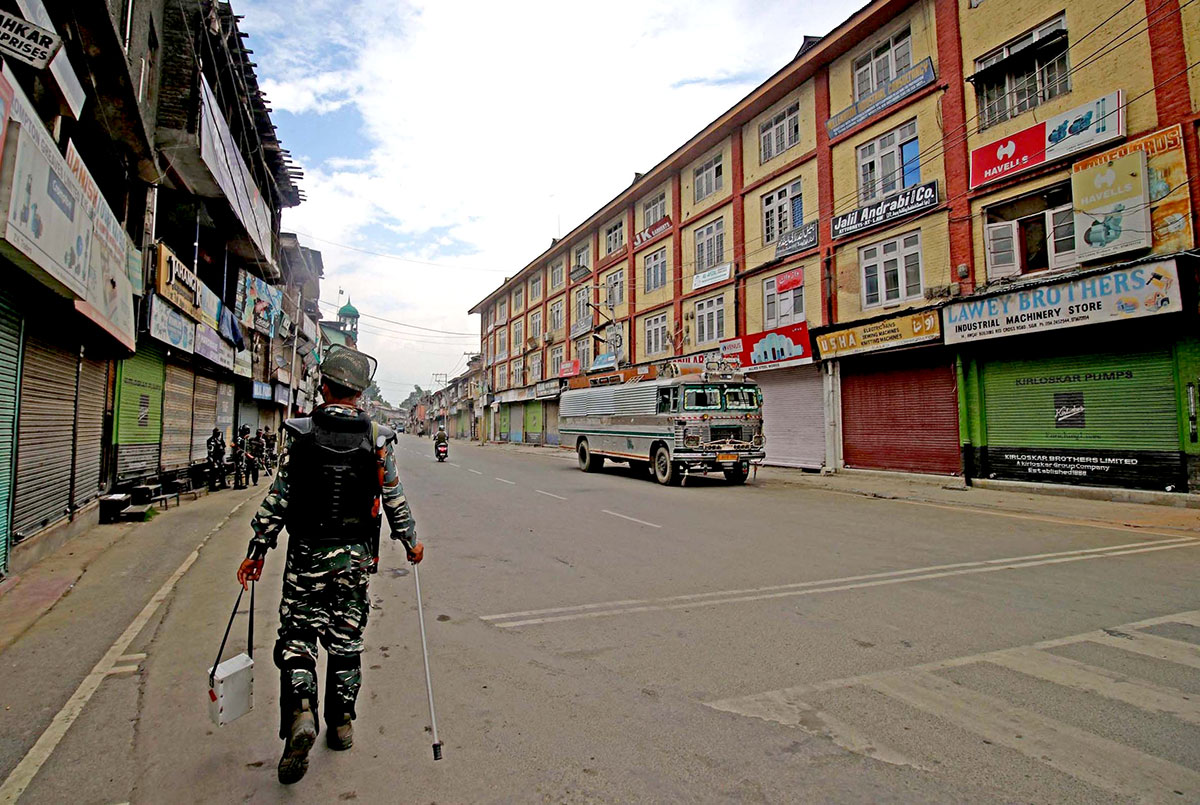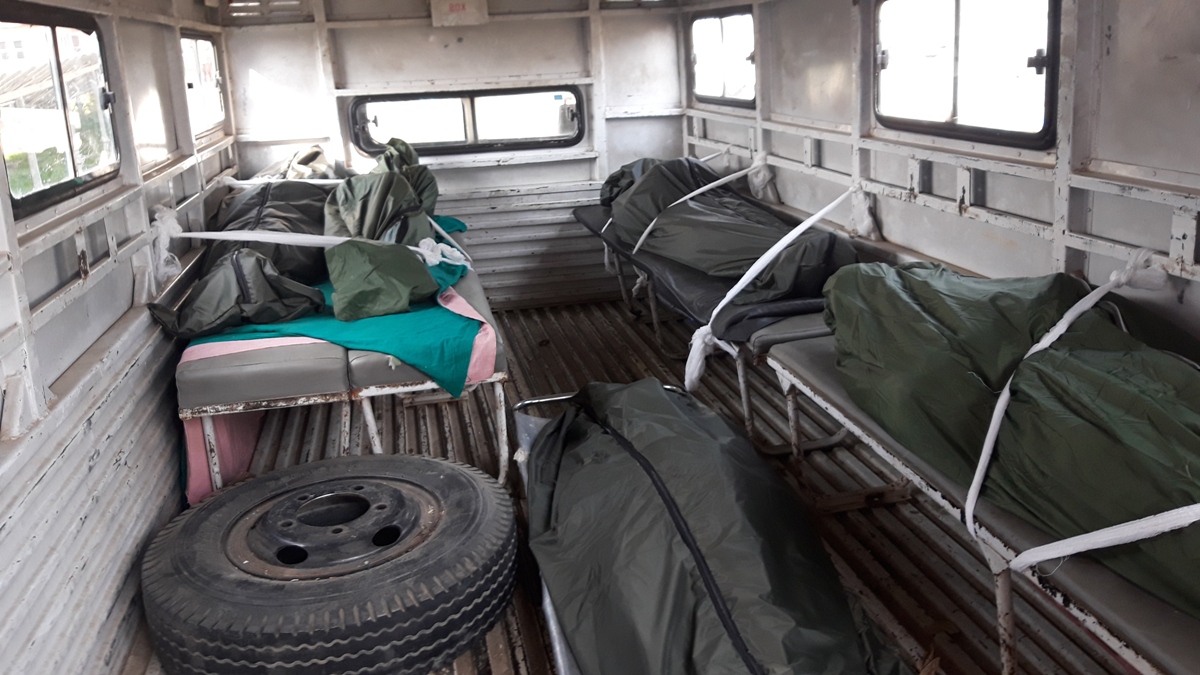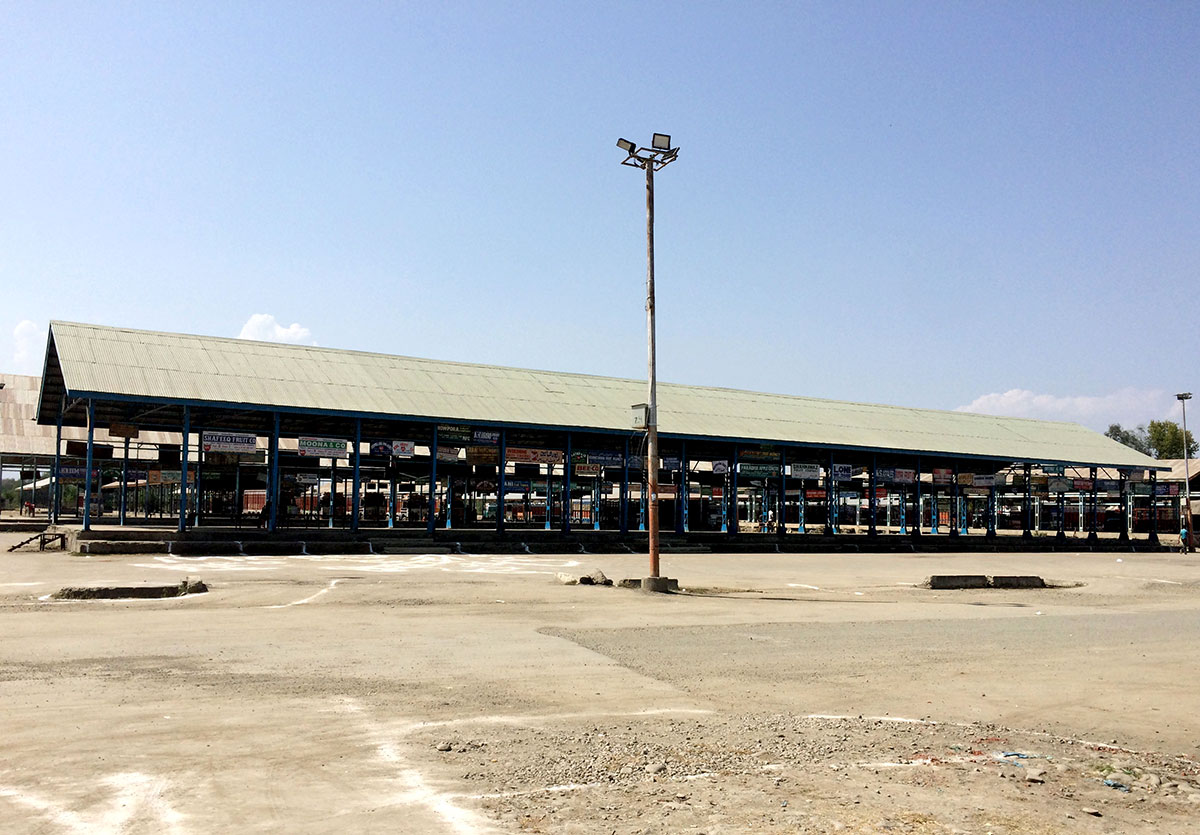At a time when the businesses across Jammu and Kashmir are bleeding, the government is working overtime for managing afresh Rs 100000 crores of investment to the UT to allay fears, reports Masood Hussain

In December when Union Industries and Railway Minister Piyush Goyal were called on by five Kashmir trade and business leaders, they appreciated Delhi’s efforts to bring in new investment. But they had a query: “How can new investment sustain when the existing one is getting out of business?”
Detailing the crisis that the businesses across Jammu and Kashmir are facing in the aftermath of August 5, the Kashmir trio comprising Kashmir Chamber President Sheikh Ashiq, Farooq Amin, Shahid Kamili, Mushtaq Chaya and Mohammad Ashraf asserted that the government is duty-bound to bring the economy out of the morass. “Kashmir has seen investors coming, getting land allotted, claiming incentives and leaving for good,” Farooq Amin said they told the visiting minister. “The only real stake on a long term basis is the local investor.”
Survival of the local business, in last more than 30 years when Kashmir remained closed for more than 3800 days because of curfew and protest strikes, is itself a miracle. “But even that has its limits,” Farooq said. “If it goes on and on, the businesses will collapse one day.”
“We sought rehabilitation of loans and term loans to the extent of at least 76 per cent for the period of 2014 floods, 2016 unrest and the ongoing turmoil,” Shahid Kamili said. “We strongly suggested insurance against production loss because of the situation so that off-setting impact of the tensions can be hedged on jobs and the bank accounts. The minister said the suggestion was good and needs to be accepted.”
Despite the disruptions in last 150 days, the banking sector in Jammu and Kashmir continues to strictly follow the RBI norm that an under-serviced account for 90 days must be declared an impaired asset in the fourth month. Jammu and Kashmir Bank that controls more than 60 per cent of the loan book in the UTs of Jammu and Kashmir and Ladakh, has not made its Q3 report public. Sources told Kashmir Life that the bank has been asked to wait till MHA comes out with some sort of a bail-out that will help reduce the quantum of impaired assets owing to strict implementation of the norms in vogue. Banks are supposed to make the quarterly reports public within three fortnights.
This might have some connection with the Goyal’s meeting and the constant communication that has been going to the North Block from the civil secretariat in Jammu since August 5. The trade is seeking interest remission for the period on their loans. They insist that the crisis were the outcome of a government decision that disrupted the business environment. Nobody actually knows if these cries for corrective intervention are being taken note of in the midst of the CAA and NRC din.
As one of the governance systems are visibly unresponsive, the trade says the taxman has gone hyper-active. Farooq said they have got Income Tax notices in bulk despite the entire trade filing their returns faithfully. “There are even penalties,” he asserted.

The withdrawing of the internet is key to the crisis on the compliance front. Traders have not been able to file either the GST or the IT. “We had already sent a detailed communication to the Union Finance Ministry seeking an extension in the filing of GST and IT,” Sheikh Ashiq said. “Since all the compliances and taxing processes are on-line, the internet disruption was expected to hit the entire business on the compliance front.” The taxman has now extended the date for filing of the IT returns.
Ashiq said Goyal was “very positive” and after a “patient hearing” actually added to the issues the trade flagged. He hopes that the MHA takes up the issues with respective ministries and gets the orders issued. “We are not seeking any concession but we want the government to understand that the mess is an outcome of their intervention,” he said.
After the meeting, the Chamber sat and revised the losses to the economy and issued a detailed report. Asserting that the loss estimation was based on the Jammu and Kashmir’s Gross Domestic Product (GDP) of 2017-18, the trade body put the loss at Rs 17, 878 crores in 120 days. It included Rs 4591 crores loss in economy’s primary sector, Rs 4095 crores to the manufacturing sector as the fast-growing services sector suffered a loss of Rs 9191 crores.
Copies of the report were submitted to the UT government and sent to various union ministries as well.
Kashmir economy is strongly linked to the Jammu, a manufacturing hub that is vital in the supply chain. Overall, both the economies have been in sort of crisis since the 2014 floods. In the last five years, they survived bloody unrest in 2016 as the ongoing silent turmoil has bled seriously the hospitality sector. In fact, the 2019 crisis started with advisory asking the tourists to vacate from Kashmir. As tourists were made to leave, the scared non-local workforce jumped the free transport convoys to Jammu. Ever since Kashmir has not been the same.
“In the hospitality sector, eighty per cent of the jobs were lost,” one insider said. “We just have skeletal staff and those guarding the properties, rest are on leave, mostly unpaid.” Those in the sector believe that it will take a lot of confidence boost and exceptionally improved environment to get the visitors back. Bad tourist season has a crippling impact on the handicrafts. Off late, the handicrafts had linked itself with the internet for designing and direct selling but the jump to modernity proved costly.
The manufacturing sector suffered for want of workforce and once they managed it, they found Kashmir low on consumption. The real estate took a huge hit as people, fearing an escalation of tensions, deferred constructions. For the two months after August, the service sector was almost sleeping. Once they got back to business, they found the ground realities had changed. The fear of tensions led to the fall in sales in almost all sectors. Farooq said he saw fall in the sales of essentials like spices. This, he said, was because the income was disrupted. “In such situations, people having some saving continue to hold it,” Farooq said. “Even in bad days, human beings try to spear some saving for the worst, that is what we are witnessing.”
Perhaps the one data that will detail the crisis is the number of applications that the Haj Committee received by intending pilgrims. This is vital because Haj is ordained for every faithful who can afford it. “Last year we received 22000 applications against 11600 berths,” Dr Abdus Salam, who heads the Jammu and Kashmir Haj Committee, said. “This year, we have reached 16000 applications and we expect some more from 10 districts of Jammu.” The Committee has extended the dates many times.
Even the Umrah tours have fallen. “In comparison to last year,” Sheikh Feroz of al-Khudam said, “I see a sixty per cent fall, if not less.” Observes Mushtaq Ahmad: “This speaks about where the money has gone and what are the priorities now.”
That is perhaps why; sections within the investors are trying to shift to hedge the risk. “I have taken Jammu and neighbouring areas more seriously in the last few months because it helps me offset part of the losses that I face in Kashmir,” Farooq said. “I do want some facility in Himachal for expansion.” He asserted that more than 400 thousand jobs were impacted by the situation since August 5. “I see it manifesting itself by an increase in social crimes in coming days,” Farooq said.
The worst came to Kashmir’s apple basket as it was caught in the crossfire of conflict and weather. It was a loss at two ends. The conflict disrupted the traditional modes and channels of business as a result of which most of the crop was either sold at throwaway costs or was not sold at all. The closure of the local mandis in the first go and later the chain of killings of non-local traders and the transporters created a situation that part of the harvest is still in Kashmir outside the jam-packed cold storage facilities.
At the time of the filing of this report, officials said more than 8000 truckloads, most of the fresh apple, are still awaiting permissions to cross the bad patch of the Srinagar Jammu national highway. “I hope the temperature helps this crop not to rot,” one official said.
The other loss was dictated by an early snowfall. More than half of the apple trees suffered losses, the older the more. It is expected to have a bearing on this sector’s output in the next many years. Apple, a more than Rs 10,000 crores economy, is the main bread and butter to the most of the peasant population living in Kashmir periphery. Unlike all other sectors, apple farmers put in everything in their orchard and manage their year by selling the crop. In most of the cases, they lack a second source of income.
One area that barely got a mention in the longer narratives on the loss was the culture of start-ups. Jammu and Kashmir was perhaps the only place in Asia where the success rate of the start-ups was as high as 85 per cent; part of the credit goes to Jammu and Kashmir Entrepreneurship Development Institute (JKEDI). Since most of these low-ticket initiatives require normal market conditions with most of the modern facilities like internet, they have either crumbled or are barely breathing.

In the backdrop of these developments, the MHA is planning a grand investment summit early next year. Chief Secretary BVR Subrahmanyam told in a recent meeting that 19 areas have been identified for the investment of an estimated one lakh crore. Plans envisage six domestic and six international roadshows and an ambassadors’ roundtable before the main event. Confederation of Indian Industry (CII) was selected as the national partner, while Earnest Young, PricewaterhouseCoopers (PwC) International Limited Expo have been selected as knowledge, media and event partners. Around 15,000 kanals of land have been identified for outside investors. Dr Jitendra Singh, a minister in the PMO, actually flew with a group PwC executives to a series of meetings in Jammu recently.
Media reports suggest that as many as 36 companies have submitted their expression of interest to invest in Jammu and Kashmir under the new scheme that will require hiring eighty per cent local staff.
“The investors Summit will provide an opportunity to allay fears and apprehensions from the minds of the outside business community about investment in J&K,” the top officer said. “It will present immense opportunities to develop contacts between the local and outside business community and will provide not only primary employment but also generate secondary and ancillary employment opportunities for youth.”















